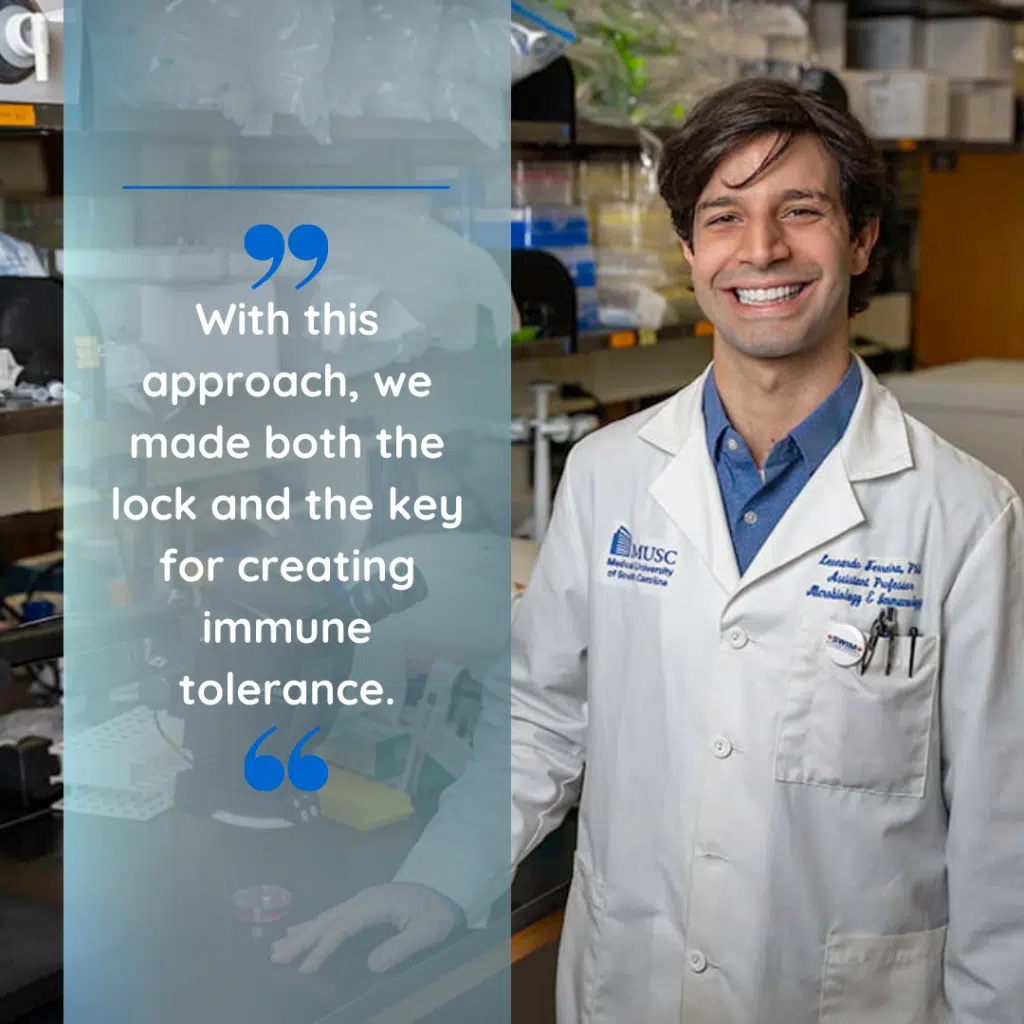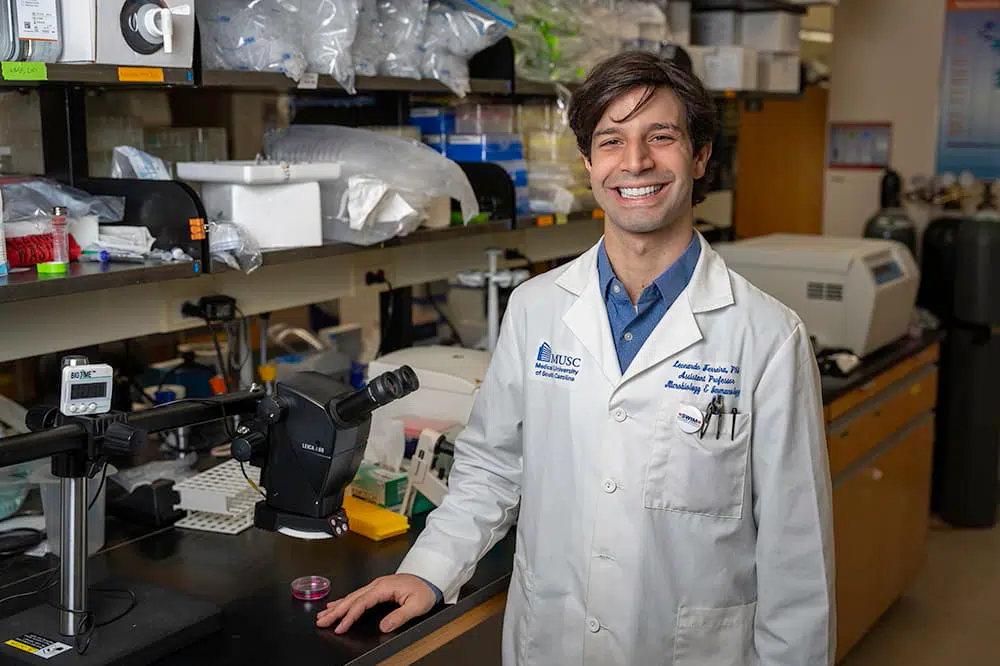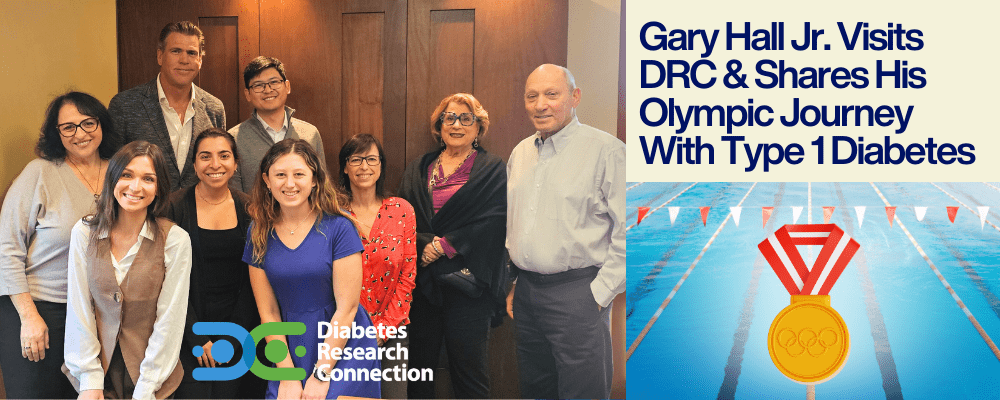This month, we were excited to receive the results from DRC-funded scientist, Dr. Leonardo Ferreira and his team at the Medical University of South Carolina who are developing a transformative treatment for type 1 diabetes (T1D).
Islet cell transplantation using beta cells from a donor has been an available therapy for certain T1D patients. Beta cells from a donor pancreas are transplanted to the patient’s liver, where they can take up residence and begin secreting insulin. However, this treatment requires patients to undergo immunosuppression for the rest of their lives to keep the body from rejecting the foreign beta cells, leaving patients vulnerable to viruses, bacteria, and cancer cells. It also requires the availability of donor cells, which may not always be accessible.
In a novel approach to tackle these obstacles, Dr. Ferreira’s team at MUSC and a research team at the University of Florida recently collaborated on a unique, highly specific strategy to treat T1D using engineered human regulatory T cells (Tregs) with a chimeric antigen receptor (CAR) and engineered stem cell-derived beta cells with a cell surface target specifically recognized by the CAR. These “CAR-Tregs” can target and protect transplanted beta cells from immune system rejection.

Their strategy is to train patients’ immune systems to accept the transplanted cells as their own, escaping the usual auto-immune destruction – a breakthrough that could eliminate the need for lifelong immunosuppressants in cell transplantation therapies.
According to Dr. Ferreira, marrying stem cell engineering and regulatory T cell (Treg) engineering allowed the first step toward a readily available, off-the-shelf solution to treating T1D.
While there are still questions to be answered and further research to be done, the promising results from lab trials mark a potential turning point in diabetes care, with implications for other autoimmune diseases and cancers as well.
This project exemplifies the type of cutting-edge research that DRC funds. We’re filled with excitement for the possibilities that lie before us, and we are fortified in our commitment to fostering innovation in T1D research until T1D is finally cured.

Learn More:
Barra, J. M., Robino, R. A., Castro-Gutierrez, R., Proia, J., Russ, H. A., & Ferreira, L. M. R. (2024). Combinatorial genetic engineering strategy for immune protection of stem cell-derived beta cells by chimeric antigen receptor regulatory T cells. Cell Reports, 43(11), 114994. https://doi.org/10.1016/j.celrep.2024.114994




